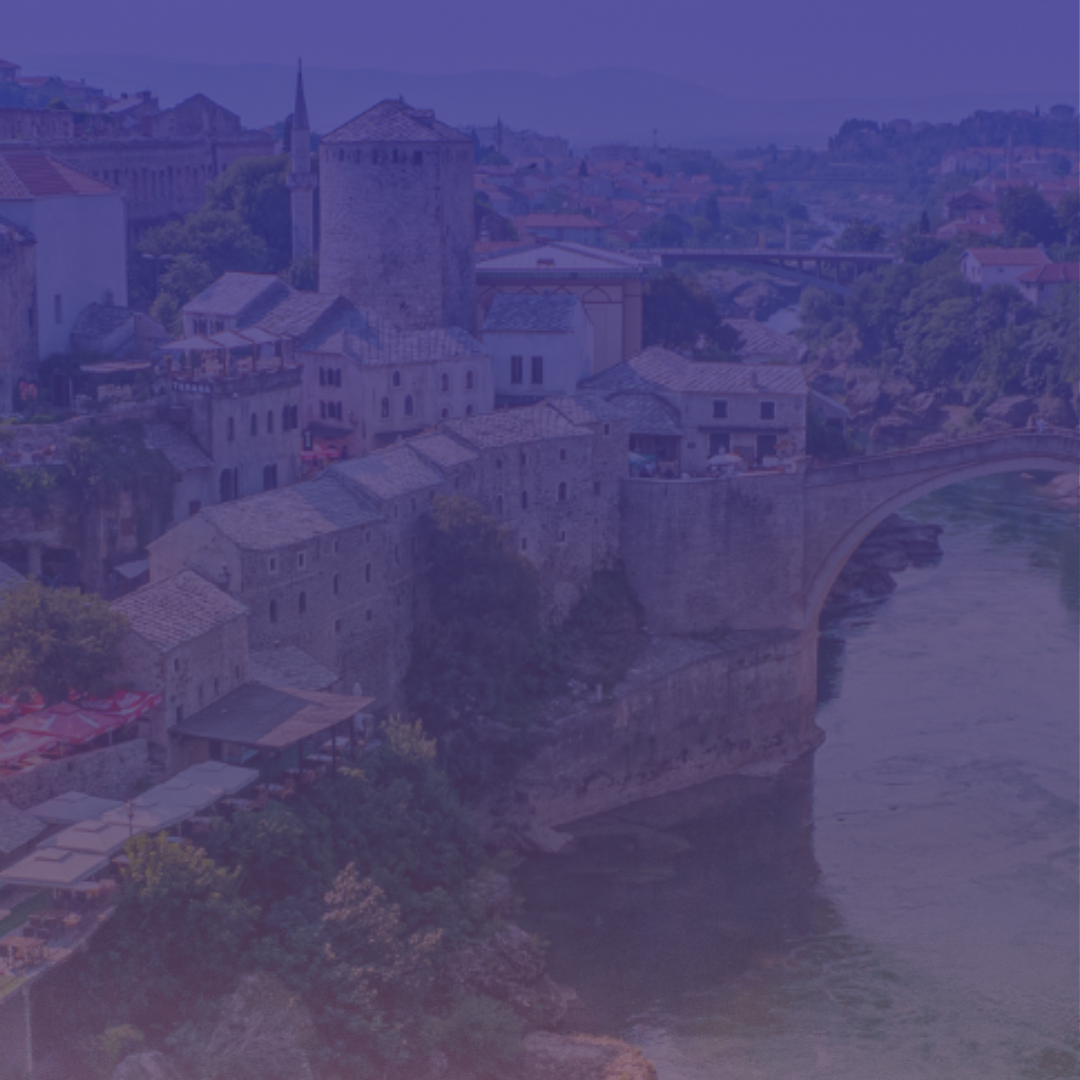
Written by: Nikita Pia Jensen, Ambassador to Germany
Edited by: Iorgus Cicala
Introduction
The Western Balkans (WB6) —encompassing Albania, Bosnia and Herzegovina, Croatia, Macedonia, Montenegro, Serbia, and Kosovo— is a region often referred to as the ‘Powder Keg of Europe’ due to its turbulent history and unsettled conflicts. From the breakup of Yugoslavia (1991-92) to the Yugoslav Wars (1991-2001) and the Kosovo conflict (1998-99), the region has been marked by ethnic tensions, nationalist movements, and violent upheavals. Against this backdrop, the question of EU accession has emerged as a potential way of stabilising the region and fostering peace and prosperity.
After the last three big waves of enlargement in 2004, 2007, and 2013, the EU has experienced ‘enlargement fatigue’ (Esteso Perez, 2020), leading to a significant stagnation in the accession negotiations. However, due to increasing disparities and of an intensifying Russian-Chinese influence in the region, the EU has seen the need to pick up its efforts to include the WB6 into the Union (Vulovic, 2023). The recent opening of enlargement talks with Bosnia and Herzegovina is a sign of these renewed efforts. Thus, this article will provide an overview of the complex history of the WB6, as well as of the challenges they face on the road to the so-desired EU membership.
Historical Background
To comprehend the current impediments and disequilibria in the Western Balkans, which granted them the name of the ‘Powder Keg’ of Europe, it is important to understand the historical context of their state formation processes. The WB6 have a tumultuous past deeply rooted in geopolitical struggles and ethnic tensions. Historically, they have been caught between the spheres of influence of Austro-Hungary, Tsarist Russia, and the Ottoman Empire. This geopolitical situation has stymied the region’s modernisation in the beginning of the 20th century and subsequently left them economically weakened (Becker, 2008).
The formation of Yugoslavia after World War I in 1918, evolving from the Kingdom of Yugoslavia to the Socialist Federative Republic of Yugoslavia in 1963, sought to unite diverse ethnic groups under one state (Becker, 2008). However, tensions persisted, particularly between Serbs and Croats, as well as between Serbs and Kosovo Albanians. Under the leadership of Josip Broz “Tito”, Yugoslavia managed to suppress competing nationalist sentiments, yet his death in 1980 unleashed waves of chauvinist patriotism and irredentism, exacerbated by the fall of the Soviet Union and by the ensuing instability in the world order (Becker, 2008).
The 1990s subsequently witnessed the disintegration of Yugoslavia amid escalating tensions. Slovenia and Croatia declared independence in 1991, triggering intervention by the Yugoslav Army (Becker, 2008). As a response, the United Nations Protection Force (UNPROFOR) was established in 1992, but its mission ended in disaster with the Srebrenica massacre. Subsequently, NATO airstrikes in 1995 aimed to halt ethnic cleansing in Bosnia-Herzegovina. However, it was the Dayton Peace Agreement in the same year that could only bring a fragile peace to the country, yet simultaneously entrenched the ethnic fragmentation. Accordingly, the covenant institutionalised the autonomy of its different ethnic groups, namely the mainly Serb Republika Srpska and the Croat-Bosnian Federation of Bosnia and Herzegovina (FBiH) (Ruge, 2020).
In 1999, NATO launched a bombing campaign against Serbia in response to the Kosovo crisis, leading to the withdrawal of Serbian forces and the establishment of a United Nations interim administration in the disputed area (Esteso Perez, 2020). Meanwhile, Slovenia and Croatia pursued their respective paths to independence and European integration, with the former joining the EU in 2004 and the latter in 2013 (Zweers et al., 2022).
The declaration of independence by Kosovo in 2008 further complicated the geopolitical landscape of the Western Balkans, sparking heated debates over recognition and full-fledged sovereignty (Kelmendi, 2024). While Kosovo’s independence has been recognised by a majority of UN member states, Serbia and some EU states continue to dispute its status, reflecting the legacy of ethnic fractionalisation and territorial clashes in the region (Kelmendi, 2024).
Current Challenges
Due to the complicated history outlined above, the WB6 continue to face a variety of challenges. Despite reform efforts, Serbia remains plagued by political instability and administrative deficits (Zweers et al., 2022). Corruption pervades various sectors, with concerns over the politicisation of the judiciary casting doubt on the rule of law. Moreover, the unresolved issue of Kosovo’s autonomy continues to loom large, fuelling nationalist sentiments and hindering efforts of domestic reconciliation (Ivanovska, 2016). The European Union’s willingness to support the Serbian government, particularly in its stance on the Kosovar question, has raised questions about the prioritisation of stability over democratic principles (Zweers et al., 2022).
Moving to one of the supposed ‘accession favourites’ in the Western Balkans, Montenegro is still no stranger to domestic issues, contrary to the country’s predominantly positive attitude towards EU integration. Political polarisation and allegations of state capture present the candidate country with significant obstacles (Zweers et al., 2022). Economic disparities between the coastal regions and the mainland increase social tensions, while high levels of emigration contribute to a massive brain drain of skilled workers. Despite strides towards alignment with the EU foreign policy, reform attempts have been criticised for failing to address systemic issues like the concentrated power of political elites (Zweers et al., 2022). Therefore, Montenegro’s status as the EU Enlargement frontrunner (Landeszentrale für politische Bildung Baden-Württemberg, n.d.) is undermined by concerns over the very authenticity of the reform agenda.
As for North Macedonia, the Skopje government has made notable progress in its EU accession journey, yet challenges seem to persist, particularly in the realms of rule of law and judicial reform (Landeszentrale für politische Bildung Baden-Württemberg, n.d.). Furthermore, bilateral disputes with neighbouring countries have slowed accession negotiations. Greece objected to the use of the name ‘Macedonia’ by its northern neighbour, arguing that it implied territorial aspirations over the eponymous Greek region. This dispute dated back to the early 1990s when the Republic of Macedonia declared independence from Yugoslavia (Kelmendi, 2024). The executive in Athens has argued that the use of the name ‘Macedonia’ implied a claim to Greek heritage and land, as Macedonia is the name of both an ancient and modern Greek region (Kelmendi, 2024). The dispute hampered North Macedonia’s aspirations for Euro-Atlantic integration, as Greece consistently blocked its EU membership bids over the naming issue. To break the deadlock, negotiations between Greece and Macedonia intensified in the late 2010s, culminating in the signing of the Prespa Agreement in June 2018 (Zweers et al., 2022). Under the bilateral pact, North Macedonia agreed to change its name to ‘Republic of North Macedonia’, thereby addressing the Greek concerns over territorial pleas and cultural appropriation.
Sharing the struggles of its fellow Western Balkans, Albania continues to grapple with systemic corruption and weak institutions, which thwart efforts of democratic governance and economic development (Zweers et al., 2022). Organised crime and drug trafficking further undermine the country’s security and stability. Recent measures to address corruption, such as amendments to law enforcement legislation, have received praise from international partners but also caused criticism for undermining institutional independence by giving political authorities more power over the executive (Zweers et al., 2022).
As an only partially recognised state, Kosovo faces unique challenges in its quest for stability and European integration (Esteso Perez, 2020). The unresolved status issue complicates efforts at state-building and governance reform, while deep-seated tensions with Serbia preclude the normalisation of relations (Landeszentrale für politische Bildung Baden-Württemberg, n.d.). Despite progress in certain areas, such as the signing of the Stabilisation and Association Agreement (SAA) with the EU in 2015, Kosovo remains at the bottom of the list for future membership in the European Union due to ongoing issues with rule of law, political instability, and the dialogue with Serbia (Zweers et al., 2022).
Lastly, despite the EU recently opening accession negotiations with Bosnia and Herzegovina, the country nevertheless faces persistent political fragmentation and ethnic divisions which prove to be significant barriers to effective governance (European Neighbourhood Policy and Enlargement Negotiations, 2024). The system established by the Dayton Accords exacerbates political deadlock as the two semi-autonomous entities created by it —the Federation of Bosnia and Herzegovina, and the Republika Srpska— often struggle to agree and thus delay the enactment of reform efforts and the tackling of other pressing issues (Ruge, 2020). The EU’s strategy, which primarily emphasises technical assistance and lacks comprehensive inclusivity, has faced criticism for its inability to tackle the root causes of ethnic tensions and political dysfunction (Zweers et al., 2022). Despite substantial financial support from the EU, Bosnia and Herzegovina continues to struggle to address humanitarian needs (Ruge, 2020).
The Issue with the EU Accession Process
The EU’s approach to use enlargement as a tool for stabilisation in the region has had mixed results to say the least. While accession could offer the WB6 a pathway to stability and serve as an incentive for reform and modernisation, the EU has often been criticised for failing in its efforts (Ivanovska, 2016). Despite the introduction of a new methodology for EU enlargement in 2020 (Esteso Perez, 2020), there remain significant obstacles for both the EU and the prospective candidates.
Firstly, the EU’s approach often leans heavily on providing financial and technical assistance to candidate countries, prioritising short-term gains over the deeper political and societal transformations necessary for sustainable integration (Zweers et al., 2022).
Secondly, while the Copenhagen Criteria do set out clear requirements for candidate countries to establish democratic institutions and uphold the rule of law, translating these tenets into specific benchmarks has proven to be a complex task (Esteso Perez, 2020). Furthermore, not only has it been confusing for the WB6, but it has also frequently caused disagreements among EU members as to how to interpret the institutional requirements.
The EU has also been criticised for its inability to take decisive action when candidate countries experience a standstill or retrogression in rule of law reforms. There is often a reluctance to publicly condemn leaders who fail to uphold democratic principles, which, in turn, leads to stagnation or even democratic backsliding (Zweers et al., 2022).
Moreover, divisions among EU member states, coupled with the abuse of veto powers, have undermined the EU’s ability to reward progress made by candidate countries, particularly in cases involving sensitive issues such as border disputes (Kelmendi, 2024). Greece’s decade-long obstruction of North Macedonia’s accession due to their historical dispute showcases this issue.
Additionally, personal ties and political expediency sometimes lend themselves to a leader-oriented approach, where praise is bestowed upon certain ruling figures despite concerns about democratic backsliding or human rights abuses. Former German chancellor Angela Merkel’s visit to Belgrade and her public endorsement of President Vucic are illustrative of this personalistic appeal towards the Western Balkan executives. Thus, some critics argue that the said strategy has fallen short of upholding democratic principles and promoting genuine change in the region (Zweers et al., 2022).
Finally, a lack of clear timelines for accession and progress milestones adds to the uncertainty and frustration experienced by candidate countries and their citizens throughout the integration process (Esteso Perez, 2020).
Conclusion
In conclusion, the historical background of the Western Balkans shows the complex challenges and instabilities that have given the region the name of the ‘Powder Keg’ of Europe. Today, the Western Balkans face multiple challenges on their path towards EU accession. Despite recent progress like the open accession negotiations with Bosnia and Herzegovina, political fragmentation, executive underperformance, and ethnic divisions continue to affect governance and integration efforts.
Moreover, the EU’s enlargement strategy has faced criticism for prioritising short-term gains over long-term transformation, and for its inability to effectively incentivise progress. Divisions among EU member states, personal ties, and political expediency have further complicated the integration process, leading to inconsistencies and delays.
Ultimately, the road to EU accession for the Western Balkans remains littered with challenges and uncertainties. While the prospect of EU membership offers a pathway to stability and prosperity, significant reforms and genuine political will are needed on both sides to overcome the obstacles and realise the vision of a peaceful and prosperous Balkans within the EU.
Bibliography
Becker, J. (2008). The European Union and the Western Balkans. Journal for Labour and Social Affairs in Eastern Europe (pp.7-27). https://www.jstor.org/stable/43293249
Esteso Perez, A. (2020). Renewing hope? An analysis of the new EU enlargement methodology and its implications for Kosovo. Group for Legal and Political Studies. Policy Analysis 01/2020. https://www.legalpoliticalstudies.org/wp-content/uploads/2020/04/GLPSPolicyAnalysis012020NewEnlargementStrategy.pdf
European Neighbourhood Policy and Enlargement Negotiations (2024, March 12). Commission proposes to open EU accession negotiations with Bosnia and Herzegovina and updates on progress made by Ukraine and Moldova. https://neighbourhood-enlargement.ec.europa.eu/news/commission-proposes-open-eu-accession-negotiations-bosnia-and-herzegovina-and-updates-progress-made-2024-03-12_en
European Commission (2020, February 5). Enhancing the accession process – A credible EU perspective for the Western Balkans. Communications from the Commission to the European Parliament, the Council, the European Economic and Social Committee and the Committee of the Regions. https://neighbourhood-enlargement.ec.europa.eu/enhancing-accession-process-credible-eu-perspective-western-balkans_en
Ivanovska, A. et al. (2016). The Western Balkans‘ bumpy Quest for EU Integration. European Policy Institute (EPI). https://epi.org.mk/docs/WB%20Bumpy%20quest%20for%20EU%20integration_Comparative%20analysis_BENCHER_en.pdf
Kelmendi, T. (2024, April 8). Separate to integrate: EU enlargement and the trouble with bilateral disputes. European Council on Foreign Relations. https://ecfr.eu/article/separate-to-integrate-eu-enlargement-and-the-trouble-with-bilateral-disputes/
Landeszentrale für politische Bildung Baden-Württemberg (n.d.). EU-Erweiterung Westbalkan. Infoportal östliches Europa. https://osteuropa.lpb-bw.de/eu-erweiterung-westbalkan
Ruge, M. (2020, November 18). Hostage state: How to free Bosnia from Dayton’s paralysing grip. European Council on Foreign Relations. https://ecfr.eu/publication/how-europe-and-the-us-can-take-bosnia-beyond-dayton-25-years-later/
Vulovic, M. (2023, February 9). Western Balkan Foreign and Security Ties with External Actors. An arena of geostrategic rivalry for the EU or a local power struggle? SWP Comment 2023/C https://www.swp-berlin.org/publikation/western-balkan-foreign-and-security-ties-with-external-actors
Zweers, W. et al. (2022). The EU as a promoter of democracy or ‘stabilitocracy’ in the Western Balkans? Clingendael Report. https://www.clingendael.org/pub/2022/the-eu-as-a-promoter-of-democracy-or-stabilitocracy/

 The ‘Powder Keg’ of Europe? Western Balkan History and the Question of EU Accession to Stabilise the Region
The ‘Powder Keg’ of Europe? Western Balkan History and the Question of EU Accession to Stabilise the Region  The impact of stigmatisation: the tampon tax across the European Union
The impact of stigmatisation: the tampon tax across the European Union  Human lives as the tools in the political game – the Belarus-Poland border crisis
Human lives as the tools in the political game – the Belarus-Poland border crisis  Exploring irregular migrants’ agency in EU border spaces
Exploring irregular migrants’ agency in EU border spaces 


